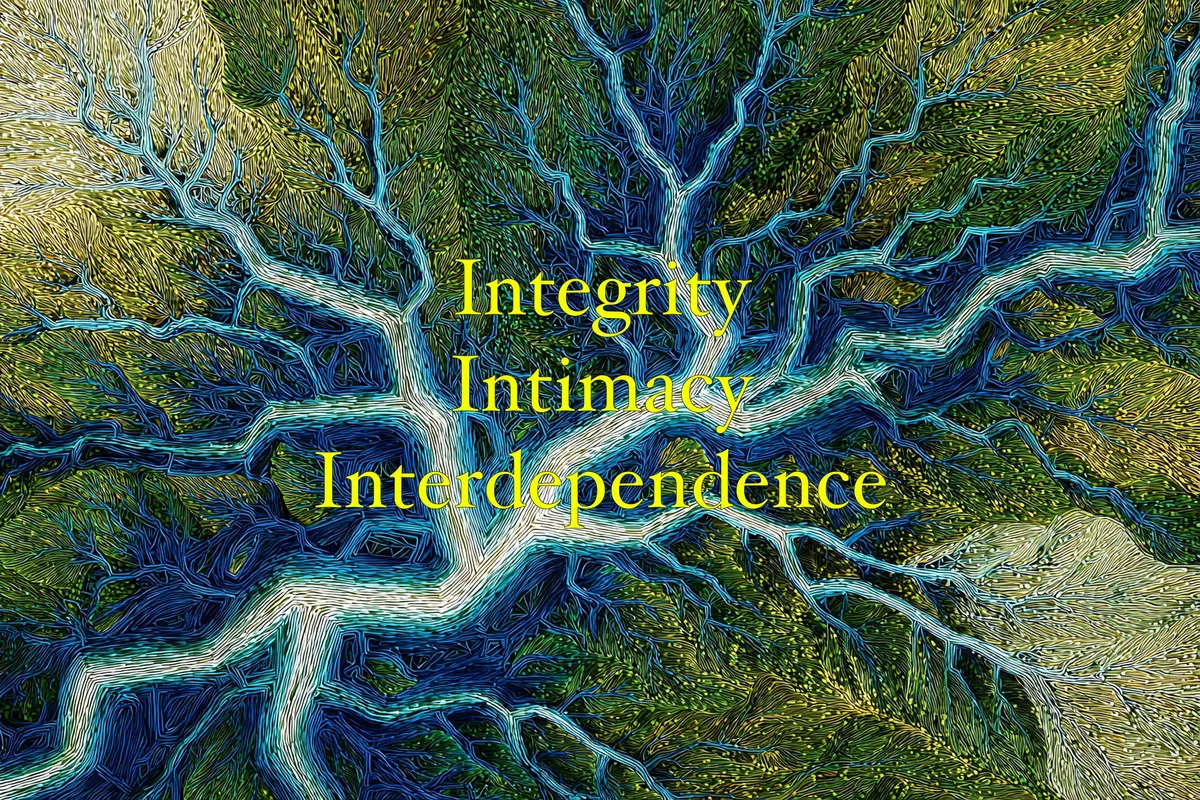Three Signals Shaping Tomorrow: Integrity, Intimacy, Interdependence


The systems we build will rise or fall with the character of the people inside them, the quality of our relationships, and the way we share risk, knowledge, and solidarity.
Three signals cut through the noise today: integrity, intimacy, and interdependence. Each is subtle, yet each is decisive.
Leaders have always spoken about values, but what changes now is measurability. When trust erodes, performance follows. Recent leadership research emphasises core values as a decision-architecture, not a poster on the wall. For example, an article from Harvard Business Review on how to identify your core values for better leadership decisions highlights that authenticity and alignment drive better outcomes.
Inside organisations, a trust recession is already underway. Employees expect values to be lived, not just posted. Engagement research, as mentioned in Harvard Business Impact shows that integrity stabilises teams by clarifying trade-offs and accelerating decisions. In practice integrity is no longer the soft side of leadership, but a force multiplier.
For brands and institutions, integrity becomes a competitive moat: it lowers coordination cost, attracts better talent, and builds a reputation that compounds. The signal is simple: trust becomes a strategy that is truly meant.
Culture is shifting toward presence. The last decade rewarded exposure; now the appetite leans into work that invites slower attention and genuine closeness. In Vogue’s coverage of contemporary portrait photography the act of being seen becomes revolutionary. One article on Jess T. Dugan’s “Look at Me Like You Love Me” reveals how intimacy becomes a gentle rebellion, a language through which truth finally breathes.
You also notice this shift in how relationships are discussed: as spaces of trust, vulnerability and emotional fluency. This applies in the workplace too. Teams that listen with interest and name emotions precisely surface risk earlier, move through conflict faster, and build creative confidence.
The signal is clear: depth beats noise. Audiences and employees reward those who replace performance with presence.
Complex problems resist solitary heroes. The next decade will be led by teams that integrate diverse expertise and build structures where information travels quickly and credit circulates. A recent leadership primer from Harvard Business School Online describes how culture plus distributed learning becomes crucial for success.
In practice interdependence looks like routines that compound trust: teams align on purpose, decide how decisions are made, and revisit agreements as conditions change. It is an ethical model too, one that acknowledges co-creation and distributed responsibility.
Beyond organisations, interdependence means communities are partners. Cultural projects that invite participation last longer because they carry the fingerprints of many.
Integrity without intimacy becomes rigid. Intimacy without integrity becomes indulgent. Interdependence without either slides into diffusion of responsibility. The next chapter will be entered with leaders who can hold all three in balance.
In practice this looks like three commitments:
These commitments change how we create, how we sell, and how we lead. They also change how we relate. Trust is rebuilt in the open, closeness is built by presence, and progress is built together.
As the noise of our era increases, these three patient signals will decide what endures.